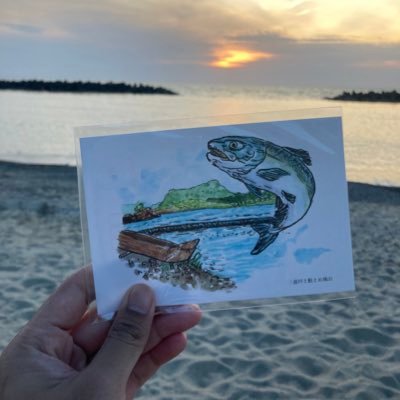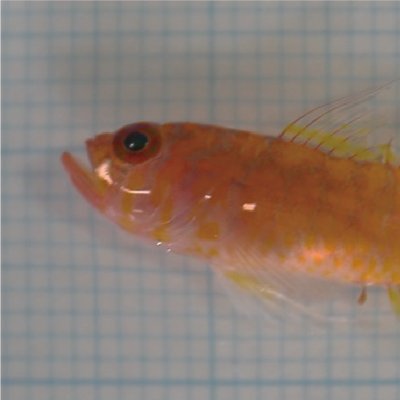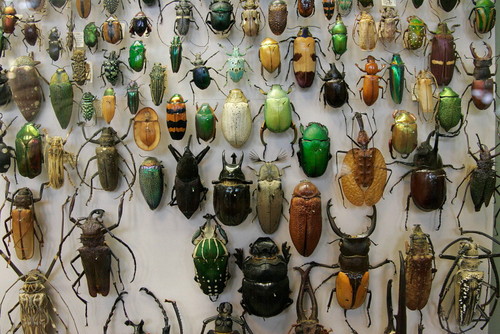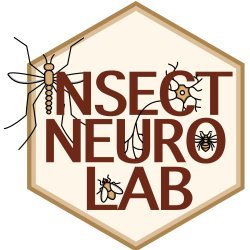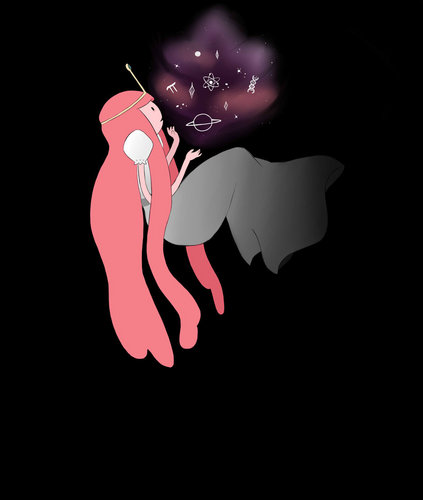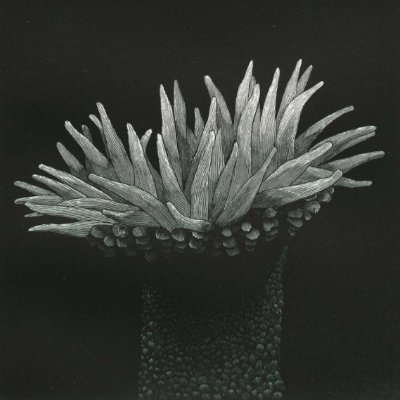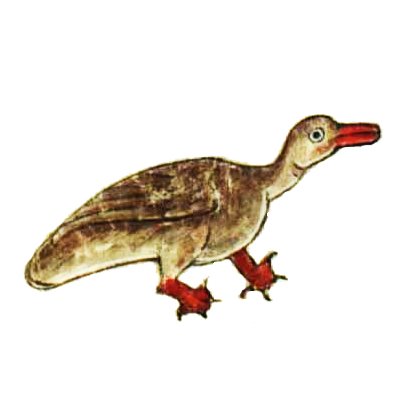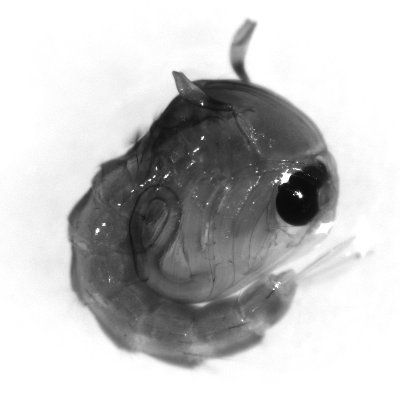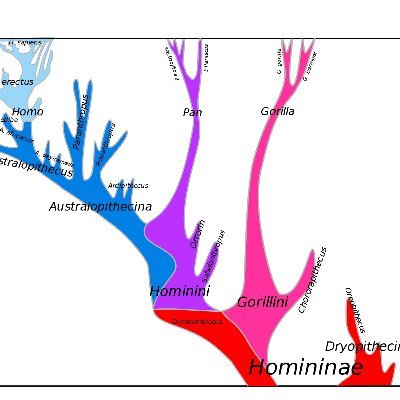
Hiromu Suzuki
@h_suzukiiPostdoc @YaleGenetics / Evolutionary genomics of weird insect behavior 🦟🪰🐝🦋🧬
Similar User

@MackKatya

@jn_pelaez

@_Airi_Sato

@kirvers

@NicMAlexandre

@evolvingORs

@DilerHaj

@BenGoldmanH

@m_karageorgi

@ecophyslab1

@trnpl

@hdweck99

@fayegromero

@Bernard_Y_Kim

@akalu_saron
How do dietary preferences evolve? We tackle this question – led by fantastic PostDoc @bertolinen + team – in collaboration with @Dahaniel and @RibeiroCarlitos Surprisingly, processing seems more important than sensory periphery. Check the pre-print: biorxiv.org/cgi/content/sh…
Having more sensory neurons sounds beneficial for perception and behavior, but is it? If so, how? Check out our new publication for some new theories. nature.com/articles/s4146…
New paper on "wing-slapping," the defensive behavior of #honeybee, now out in @ESAEcology! Watch the full video set to the cool music of #MIYAVI (@MIYAVI_OFFICIAL), who’s renowned for his guitar slapping! 🐝⬇️⬇️⬇️🐝 youtube.com/watch?v=8N2IUR… Paper info: doi.org/10.1002/ecy.43…
Tasty new #VosshallLab mosquito paper by @_TakeshiMorita and a dream team of current and former lab members @hey_its_nia @oliwiagoldman @LeahHouri @BenMatthewsUBC @MattDeGennaro @trevor_sorrells Cross-modal sensory compensation increases mosquito attraction to humans…
how can you start with a new behavior and figure out brain cell populations involved? brain single nucleus profiling of a social behavior and behavioral evolution, new paper with @BriannaHegarty_ @gwgscience @StreelmanLab paper link: bit.ly/3QCFp5G tweetorial below!
原著論文「線虫C. elegansが電場を利用して宙を飛び、集団で昆虫に飛び乗り拡散する」がCurrent Biologyに掲載されました(北大中垣研との共同責任著者)。(1/n) twitter.com/CellPressNews/…
Microscopic worms use electric fields to “jump” onto naturally charged bumblebee chauffeurs. @sugitakulab, @HokkaidoUni Katsuhiko Sato Read more in @currentbiology: cell.com/current-biolog…
今週末こちらのイベントで最近の進化生物学(とポケモン)の話をします!バークレー周辺にお住まいの方、ぜひ遊びに来てください。お寿司もあります🍣🍣🍣🍣🍣🍣🍣 tinyurl.com/47a4bv37
How does the evolution of gene expression and cell types contribute to #chemosensory differences among #drosophila species? We learned a lot from our latest data/analyses. Big effort led by Gwen and Bastien: biorxiv.org/cgi/content/sh… @tane_kafle @sanchezalcaniz @ISBSIB

Where do new senses come from? In paired studies, we explore the structural basis of sensory receptor evolution in octopus and squid. @CoreyAHallard @wendyssae @RyanHibbs10 @Nature - nature.com/articles/s4158… - nature.com/articles/s4158…

Our Timema climate adaptation paper is finally out in Nature Ecology & Evolution! This work started when I was a Ph.D. student in @ZachGompert lab and I had the absolute pleasure of collaborating with the amazing Patrik Nosil and co! Read here: nature.com/articles/s4155…
Today we introduce an ML-generated sensory map that relates thousands of molecules and their perceived odors, enabling the prediction of odors from unseen molecules and providing a potential tool to address global health issues like insect-borne disease. goo.gle/3TOZVPZ
Our work on human odor coding in the Zika/dengue mosquito now in final form! This collaborative work was led by @zhaozhilei with critical contributions from @JessicaLZung on odor analysis, @AnnikaHinze and Rickard Ignell on wind tunnel behavior… nature.com/articles/s4158…
A huge group of Japanese honeybees protect themselves from a giant hornet entering the nest by surrounding the invader and flapping their wings, creating lethal heat for the hornet but the bees. A rhodopsin might be involved in the thermal sensation: bmcecolevol.biomedcentral.com/articles/10.11…
Hello, I'm currently looking for a Research Assistant (RA) position after my graduation in May 2022. My plan after doing RA is to go to PhD program in Biology. I attached a list of the techniques I have gained so far for your references. Thank you so much. Hiro. H

United States Trends
- 1. $MAYO 12,7 B posts
- 2. Tyson 441 B posts
- 3. #wompwomp 3.724 posts
- 4. Pence 53,5 B posts
- 5. Debbie 29,1 B posts
- 6. Kash 90,6 B posts
- 7. Dora 23,6 B posts
- 8. Whoopi 90,2 B posts
- 9. Ronaldo 136 B posts
- 10. Mike Rogers 17 B posts
- 11. Connor Williams 1.000 posts
- 12. The FBI 248 B posts
- 13. #LetsBONK 12 B posts
- 14. Gabrielle Union 1.807 posts
- 15. Iron Mike 19 B posts
- 16. National Energy Council 4.833 posts
- 17. #FursuitFriday 16,6 B posts
- 18. Laken Riley 56,7 B posts
- 19. Pepsi 20,8 B posts
- 20. #15deNovembro 2.074 posts
Who to follow
-
 Katya Mack
Katya Mack
@MackKatya -
 Julianne Pelaez
Julianne Pelaez
@jn_pelaez -
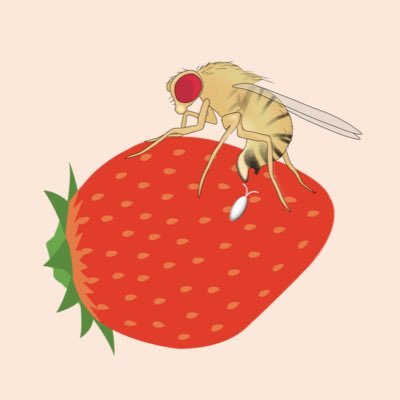 Airi Sato
Airi Sato
@_Airi_Sato -
 Dra. Kirsten Isabel Verster 🪰🧬🦠
Dra. Kirsten Isabel Verster 🪰🧬🦠
@kirvers -
 Dr. Nicolas M Alexandre
Dr. Nicolas M Alexandre
@NicMAlexandre -
 Philipp Brand
Philipp Brand
@evolvingORs -
 diler haji
diler haji
@DilerHaj -
 Benjamin Goldman-Huertas
Benjamin Goldman-Huertas
@BenGoldmanH -
 Marianna Karageorgi
Marianna Karageorgi
@m_karageorgi -
 Dr Caroline Williams
Dr Caroline Williams
@ecophyslab1 -
 Rebecca Tarnopol
Rebecca Tarnopol
@trnpl -
 Hany Dweck هاني دويك
Hany Dweck هاني دويك
@hdweck99 -
 Faye Romero
Faye Romero
@fayegromero -
 Bernard Kim
Bernard Kim
@Bernard_Y_Kim -
 Saron ሚኪያስ Akalu
Saron ሚኪያስ Akalu
@akalu_saron
Something went wrong.
Something went wrong.






